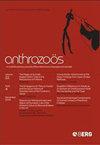犬类福利教育对小学生的干预效果评价
IF 2.3
2区 农林科学
Q2 SOCIOLOGY
引用次数: 0
摘要
本研究评估了犬类福利教育干预“T先生挠痒痒工作坊”的有效性,以提高8- 9岁儿童的犬类情感识别,他们对犬类感知的信念,他们对犬类福利需求的知识,他们对虐待犬类的态度,以及他们对宠物的依恋。“T先生挠痒痒工作坊”是一项一次性干预活动,包括一个1.5小时的福利活动工作坊,在网上向整个教室进行。工作坊包括三个活动:(1)犬类情绪识别任务;(2)为年长的狗创造一个“舒适箱”的护理设备;(3)为儿童创造一个积极记忆的记忆罐。本研究采用2 × 2混合因子设计进行定量评价。因素一是测试阶段(时间),一个重复测量的变量(测试前与测试后),因素二是受试者之间的变量条件(干预组与对照组)。选取一所学校5个小学班(4个干预班和1个对照班)的120名8-9岁儿童参与研究。结果表明,干预组儿童从测试前到测试后对犬类情绪识别的改善显著高于对照组。在干预组中,故意虐待是可以接受的态度没有变化;这些态度在对照组中变得更糟。最后,对儿童反应的定性内容分析表明,对干预的反馈是高度积极的。研究结果表明,适龄犬类福利教育能有效提高幼儿犬类的情感识别能力和对故意虐待行为的态度。本文章由计算机程序翻译,如有差异,请以英文原文为准。
An Evaluation of a Canine Welfare Education Intervention for Primary School Children
This study evaluated the effectiveness of a canine welfare education intervention, “Mr T’s Tickles Workshop,” for improving 8- to 9-year-old children’s canine emotion recognition, their belief about canine sentience, their knowledge of canine welfare needs, their attitudes toward cruelty to canines, and their attachment to pets. “Mr T’s Tickles Workshop” was a one-off intervention comprising a 1.5-hour workshop of welfare activities delivered to whole classrooms online. The workshop consisted of three activities: (1) a canine emotion recognition task, (2) creating a “box of comfort” of care equipment for older dogs, and (3) creating a memory jar of positive memories for children. A 2 × 2 mixed factorial design was used for the quantitative evaluation of this study. Factor one was the phase of testing (time), a repeated-measure variable (pre-test versus post-test), and factor two was the between-subject variable conditions (intervention versus control group). A sample of 120 children aged 8–9 years from five primary school classes (4 intervention classes and 1 control class) from one school participated in the study. The results showed that children in the intervention group improved significantly more than the children in the control group in terms of children’s canine emotion recognition from pre-test to post-test. There was no change in attitudes that intentional cruelty is acceptable in the intervention group; these attitudes worsened in the control group. Finally, the qualitative content analysis of children’s responses showed that feedback on the intervention was highly positive. The findings indicate that age-appropriate canine welfare education can effectively enhance children’s canine emotion recognition and attitudes toward intentional cruelty.
求助全文
通过发布文献求助,成功后即可免费获取论文全文。
去求助
来源期刊

Anthrozoos
农林科学-兽医学
CiteScore
3.40
自引率
18.80%
发文量
43
审稿时长
>36 weeks
期刊介绍:
A vital forum for academic dialogue on human-animal relations, Anthrozoös is a quarterly, peer-reviewed journal that has enjoyed a distinguished history as a pioneer in the field since its launch in 1987. The key premise of Anthrozoös is to address the characteristics and consequences of interactions and relationships between people and non-human animals across areas as varied as anthropology, ethology, medicine, psychology, veterinary medicine and zoology. Articles therefore cover the full range of human–animal relations, from their treatment in the arts and humanities, through to behavioral, biological, social and health sciences.
 求助内容:
求助内容: 应助结果提醒方式:
应助结果提醒方式:


